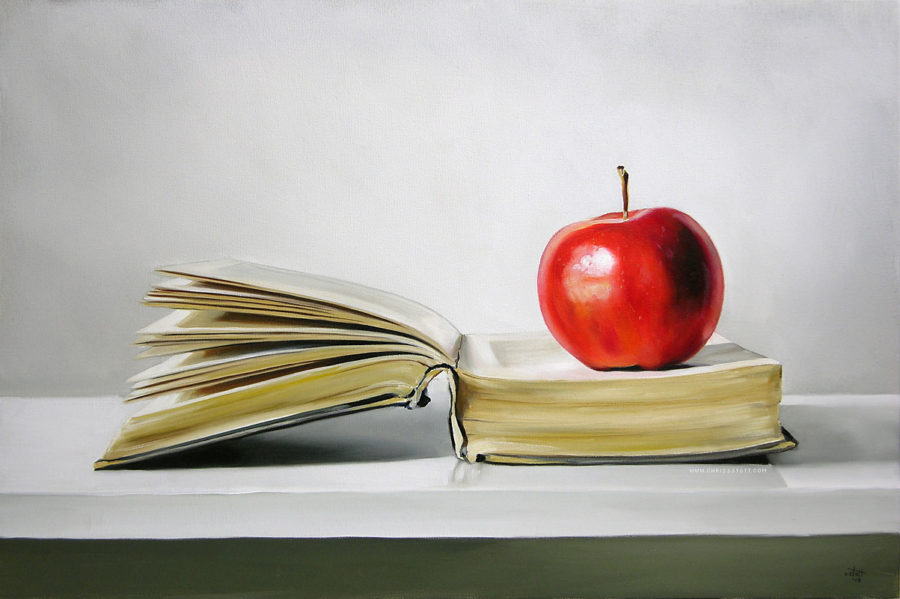Liu: Student-professor relations cause many complications
Students hooking up with their professors is not a novel concept. Columnist Cara Liu explains the reasons student-teacher relations are not only unprofessional but also potentially career ending for not only the professor but also the student.
April 21, 2014
Love. A wonderful word for two people who care deeply for one another. Yet when it manifests within an institution — especially when it involves a professor and a student — it walks a fine line between mutual consent and sexual harassment. As romantic as it may seem, there are problems that come with dating a member of the university faculty.
It is known that students do hook up with their professors, for various reasons. Some exchange sexual favors for a better grade, others want the thrill of a forbidden affair and few simply feel an attraction to their knowledgable and authoritative demeanor in the classroom.
The Iowa State policy regarding consensual relationships between faculty and a student is a big thumbs-down. The policy clearly states that “a faculty member must not participate in the evaluation of a student, colleague or staff member with whom a romantic or sexual relationship exists or has existed.”
An intimate relationship can happen only if both parties removed themselves from potential conflicts of interest. Otherwise, disciplinary action would be taken. Any cases of conflict of interest should be reported to the Dean of Students Office.
Teresa Downing-Matibag, professor of sociology at Iowa State, focused much of her research on intimate and sexual relationships in young adults. She believes that a consensual relationship between faculty and student is inappropriate due to a power imbalance.
“In such cases, the student’s educational experience would be compromised; their grades would no longer reflect their true effort. Since the instructor is in a higher position of power than the student, one party would inevitably get more out of the relationship than the other,” Downing-Matibag said.
Back in the 1930s to about the 1960s, before the sexual revolution, amorous relationships between professors and students were quite common. It came with the “erotic dimension to pedagogy,” says Mary Beard, a professor at Cambridge University. Sex back then was simply considered an experience of life.
Many famous marriages came from these pedagogical affairs. John Kenneth Galbraith, an emeritus professor at Harvard University, met his future wife when she was his graduate student at Radcliffe. They had been married for more than 50 years and had four children.
John Nash, the famous mathematician portrayed in “A Beautiful Mind,” met his future wife Alicia while he was a professor at M.I.T., and she was his student.
So what has changed the last few decades that made student-professor relationships such a taboo? Downing-Matibag says people have become aware of the dangers of sexual abuse.
“There is a potential for the misuse of power in such relationships,” she said, “So universities have implemented policies to protect the students.”
In addition to the reasons mentioned above, students should know that being in such a relationship is damaging to the instructor’s reputation. Most colleges, including Iowa State, do not look kindly upon professors who would engage in sexual or intimate relationships with a student.
If found out, the professor’s career would likely be terminated, something that neither party would want. In addition, the student would also be the topic of gossip among the faculty and students, and it would be difficult for him or her be taken seriously again.
Cristina Nehring wrote an article in Harper’s that said it is perfectly normal to have an uncomfortable sexual tension in the classroom, but we simply should not act on it. “… [t]eacher-student chemistry is what sparks much of the best work that goes on at universities … [i]n most cases, academic eros works from behind the scenes … [i]t ensures that the work in the classroom is charged, ambitious and vigorous. In most cases, it would be counterproductive for it to emerge, itself, into the limelight.”
It is also possible that the reason why the majority of these relationships involved an older male professor and a younger female student can be attributed to the fact that females are socialized to pursue older men who are more successful than they are.
Young women also tend to use flirting as a way to gain attention, especially from older men. It is important that female students are aware of the circumstances and who is on the receiving end of their flirtation so as to avoid sending out the wrong message.
As college students, we are still wet behind the ears when it comes to professional skills and life experiences. We come to college eager to learn and to test our potential in the real world. The professors are catalysts for bridging the gap between students’ passion and their chosen profession.
Since professors hold such power and certainty, it is easy for some students to confuse their passion for the subject and the person who embodies that knowledge at the front of the room.
There are no rules that prevent students from dating professors who no longer preside over their education, but the truth is that reality often does not match our expectations. Just because a professor is smart and charismatic in the classroom does not necessarily make him or her equally as charming over dinner.
In order to preserve the integrity of an academic culture, there are boundaries that must not be crossed; one can fantasize about a professor, but it should remain just that: a fantasy.







